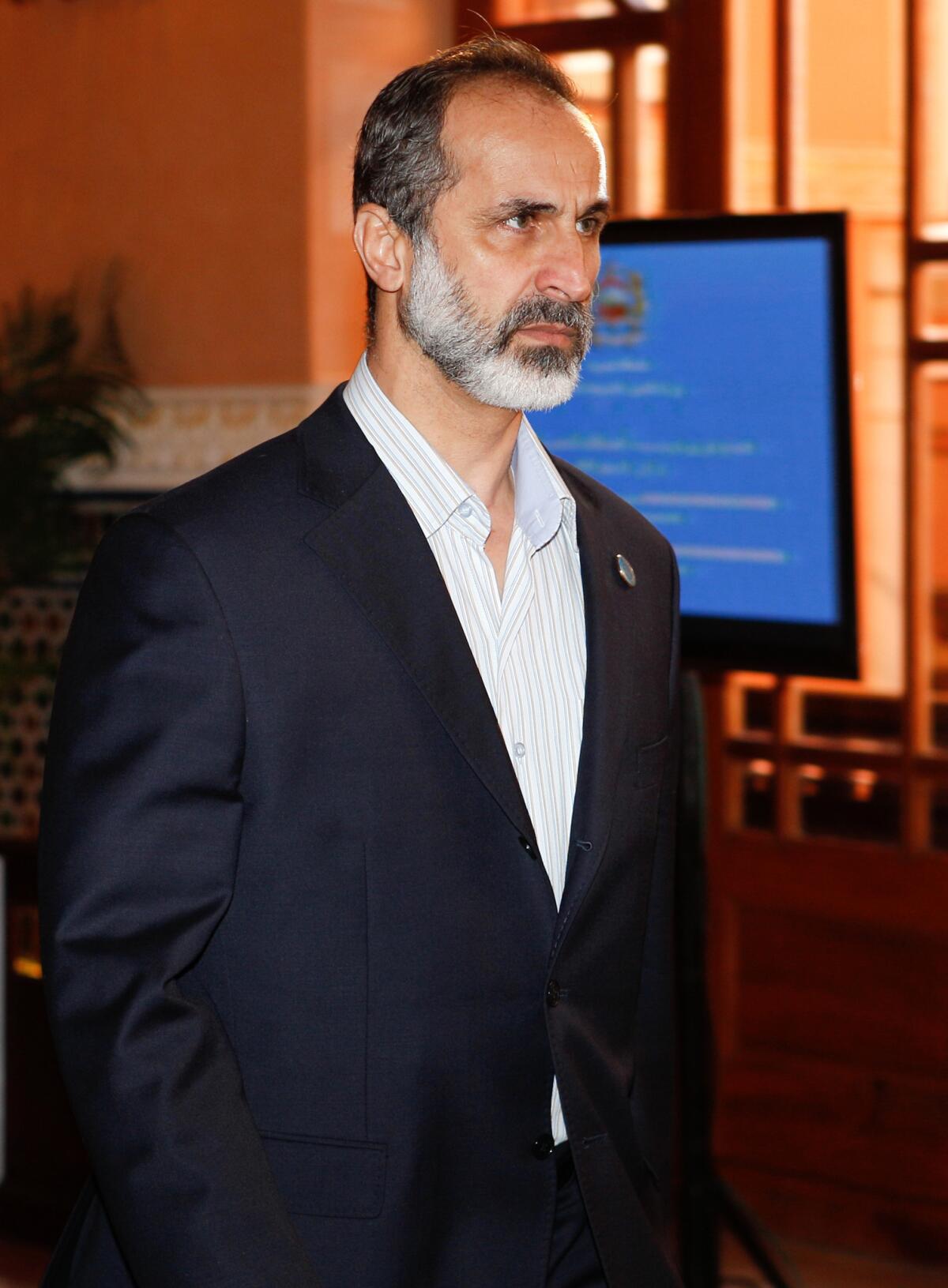Syrian opposition leader suggests talks with Assad

BEIRUT -- Divisions and internal differences continue to plague the fractured Syrian opposition.
The latest sign of discord comes in a Facebook post by Moaz Khatib, the Islamic scholar and former petroleum engineer named in November as the head of the newly minted dissident umbrella group, the National Coalition of Syrian Revolutionary and Opposition Forces.
In the Facebook comment that surfaced Wednesday, Khatib, seemed to cross a kind of Syrian Rubicon by suggesting he would be willing to negotiate with representatives of the government of Syrian President Bashar Assad in a bid to end the almost two-year rebellion.
Khatib named two preconditions: The regime frees about 160,000 political prisoners and renews the expired passports of exiled dissidents.
The suggestion was startling. There has been a firm consensus among opposition leaders outside Syria and rebel commanders in the country that talks with Assad are a nonstarter.
Too much blood has been spilled, opposition figures argue. Assad must step down, then negotiations may be possible, the dissidents say.
The unyielding, no-talks-with-Assad position was part of the accord hammered out in November that gave birth to the new Khatib-led coalition. The group was formed in large part to present a unified front for the long-fragmented Syrian opposition.
But unity has been fleeting.
Khatib’s offer of peace talks drew immediate scorn from other dissidents, notably members of the Syrian National Council, the largest bloc in the Khatib-led coalition.
In a statement, the Islamist-dominated council reiterated that it was against any kind of negotiation “with the criminal regime.”
Khatib, in a subsequent posting, said his position was a matter of “personal opinion.” But the former imam of the historic Umayyad Mosque in Damascus was unapologetic, declaring that he would not accept “intellectual terrorism.”
A political committee of the coalition is expected to discuss the matter Thursday, Khatib said.
Whether Khatib’s comments augur a softening of the coalition’s staunch rejection of talks with Assad remains to be seen. In his last speech, the Syrian president called for a national dialogue, a suggestion roundly rejected by much of the opposition.
Assad has, in fact, repeatedly called for dialogue, without clarifying whom exactly he is willing to talk with. The president has publicly declared that he will not sit down with “terrorists,” a category that, from Assad’s view, appears to encompass all armed rebels and their many backers inside and outside the country, presumably including Khatib and his coalition.
ALSO:
Vietnam releases American activist accused of subversion
Egyptian opposition leader calls for talks to end violence
France, Western allies likely to be mired in Mali for years
--Special correspondent Lava Selo in Beirut contributed to this report.
More to Read
Start your day right
Sign up for Essential California for news, features and recommendations from the L.A. Times and beyond in your inbox six days a week.
You may occasionally receive promotional content from the Los Angeles Times.






